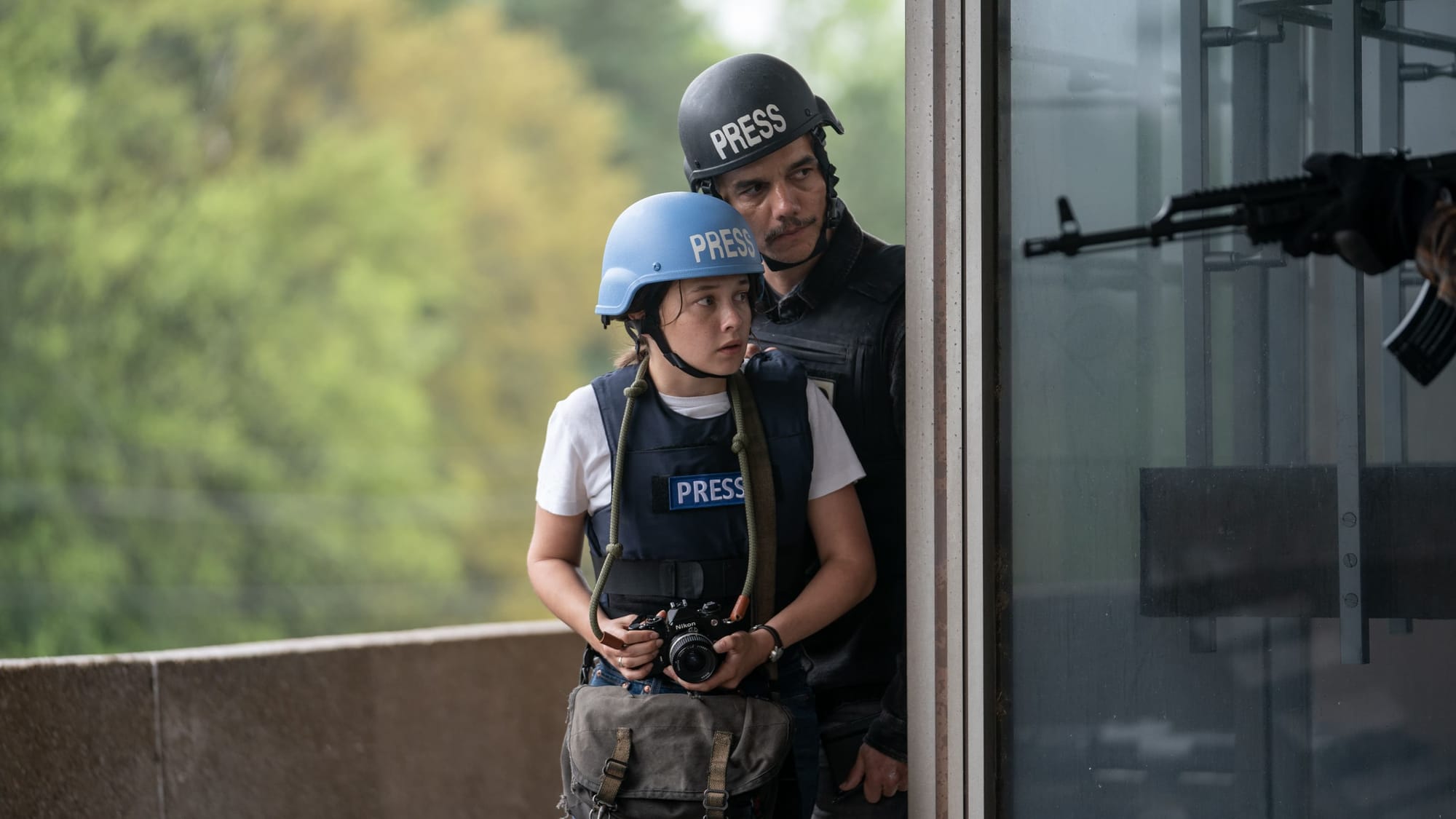CIVIL WAR: Post Meet-Up Comments

Thanks for those of you who came out! We had a lot to discuss afterward, but after digesting I made some connections between the themes of the movie that I thought opened up for me what it was "all about".
Mild Spoilers below. I don't talk about specific plot points, but I do tackle what I think it all means which you may want to consider for yourself.
I certainly recommend that everyone see this movie, and in 2024; I can't imagine this not winding up as one of my Top 10 films of the year. It is difficult to watch at times, and very violent, but the message is timely and important.
CIVIL WAR
2024, USA, d. Alex Garland, 1h49m, *****
A lot of reviews of this movie have characterized it as apolitical, which had me a little worried about the film. The fact that California and Texas are teamed up in their violent opposition seems an implausible collaboration across the present Blue-Red divide. If the point of the film is to simply imagine what another war pitting Americans against Americans would look like, I would question the value of that as a film.
While Civil War does not label this as a conflict between Republicans and Democrats, that doesn't mean that the movie is apolitical. Alex Garland knows that the disintegration of democracy, of public trust in institutions, and above all, civility itself is under attack by bad actors in the political sphere. Corrupt sycophants who use populism, hatred, fear-mongering, and a distrust of conventional journalism to take public office, refuse to enact meaningful policies, and pit their vocal base against anyone who doesn't agree with their supposed "moral values".
It's no coincidence that Texas and California secede, as both states have had such movements and have been heard with a loud voice that far exceeds their miniscule support. Florida is also mentioned in Civil War. Nick Offerman is not doing an outright impression of Trump, but its hard not to see him as a similar figure, with his scowl, his sweeping patriotic statements, and the way he rehearses an apparently unwritten speech. A few of his turns of phrase reminded me of the "hot mic" moments we saw of a shaken President Trump right after he gave his first speech about the COVID-19 pandemic. But Trump is not the only sycophant plaguing our government at the moment. And as soon as it is no longer politically convenient for them to all be on the same side, they will start bickering and backstabbing, as they already have in Congress.
The other important element of Civil War is the perspective of war photographers, and here is where I see a lot of people missing the point of the movie, because they are not just main characters as a convenient way to move the audience through the United States as a war zone. Kirsten Dunst's character espouses a philosophy that war photographers should only observe and not try to change their environment; they should be impartial and let others form opinions about what is happening.
While it's true that war photographers in other countries must know that they cannot do much to change outcomes directly, they are also unlikely to be so callous as to not help someone in need. There are many stories of war photographers getting a shot and then putting down the camera to save an individual's life or help them get life-saving medical attention.
I don't think Civil War is concerned with the philosophy of war photographers, though, but rather our own inaction as citizens. Many of the characteristics of the photographers in this movie remind me of Americans as a whole. They didn't believe it would ever happen to their country. They are increasingly accustomed to the violence happening around them. We are the same. The crazy people in our government are so numerous now that its hard to keep up with it. They are only dangerous if we sit by passively and watch them do it. We are the ones who can collectively stand up and do something against them.